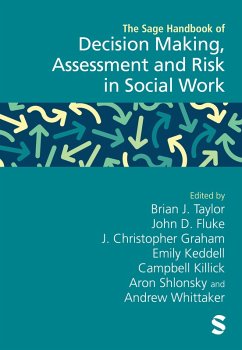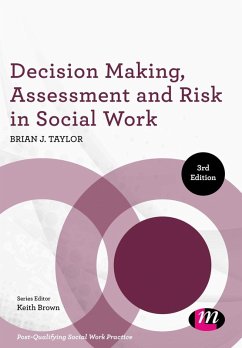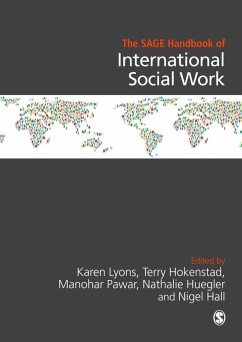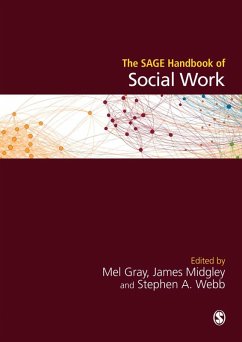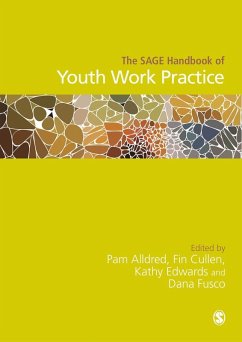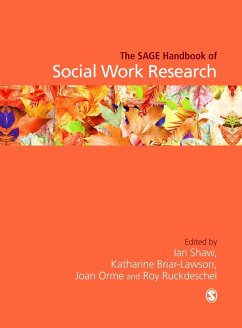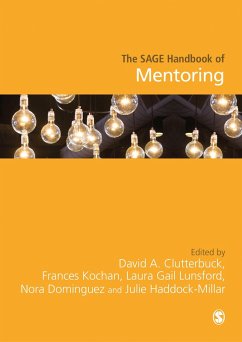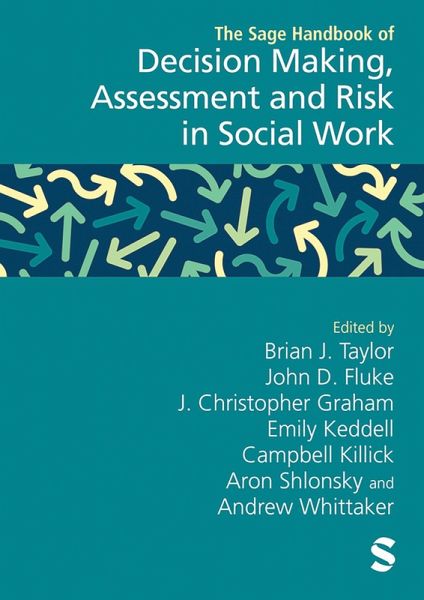
The Sage Handbook of Decision Making, Assessment and Risk in Social Work (eBook, PDF)
Versandkostenfrei!
Sofort per Download lieferbar
82,95 €
inkl. MwSt.
Weitere Ausgaben:

PAYBACK Punkte
41 °P sammeln!
The SAGE Handbook on Decision Making, Assessment and Risk in Social Work provides a comprehensive overview of key strands of research and theoretical concepts in this increasingly important field. With 49 chapters and four section summaries, this Handbook describes the 'state of the art'; discuss key debates and issues; and gives pointers on future directions for practice, research, teaching, management of services, and development of theoretical understandings.A key aim of this Handbook is to support the development of sound, applied knowledge and values to underpin reasoned professional judg...
The SAGE Handbook on Decision Making, Assessment and Risk in Social Work provides a comprehensive overview of key strands of research and theoretical concepts in this increasingly important field.
With 49 chapters and four section summaries, this Handbook describes the 'state of the art'; discuss key debates and issues; and gives pointers on future directions for practice, research, teaching, management of services, and development of theoretical understandings.
A key aim of this Handbook is to support the development of sound, applied knowledge and values to underpin reasoned professional judgement and decision making by social workers in practice and those in management and regulatory roles.
With contributions from a global interdisciplinary body of leading and emerging scholars from a wide variety of roles, this handbook has been designed to be internationally generalisable and applicable to all major areas of social work.
This Handbook provides a field-defining account of decision making, assessment and risk in social work which is unrivalled for its diversity and strength of coverage, and will be of value to social work researchers, teachers and practitioners, as well as to those in allied fields such as health care.
Section 1: Professional Judgement
Section 2: Assessment, Risk and Decision Processes
Section 3: Assessment Tools and Approaches
Section 4: Developing and Managing Practice
Section 5: Concluding Section / Afterword
With 49 chapters and four section summaries, this Handbook describes the 'state of the art'; discuss key debates and issues; and gives pointers on future directions for practice, research, teaching, management of services, and development of theoretical understandings.
A key aim of this Handbook is to support the development of sound, applied knowledge and values to underpin reasoned professional judgement and decision making by social workers in practice and those in management and regulatory roles.
With contributions from a global interdisciplinary body of leading and emerging scholars from a wide variety of roles, this handbook has been designed to be internationally generalisable and applicable to all major areas of social work.
This Handbook provides a field-defining account of decision making, assessment and risk in social work which is unrivalled for its diversity and strength of coverage, and will be of value to social work researchers, teachers and practitioners, as well as to those in allied fields such as health care.
Section 1: Professional Judgement
Section 2: Assessment, Risk and Decision Processes
Section 3: Assessment Tools and Approaches
Section 4: Developing and Managing Practice
Section 5: Concluding Section / Afterword
Dieser Download kann aus rechtlichen Gründen nur mit Rechnungsadresse in A, D ausgeliefert werden.




